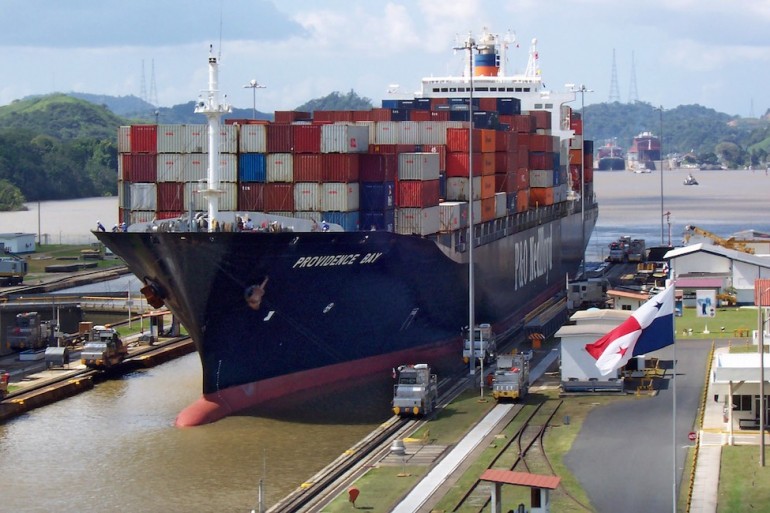Newsroom Panama posted this article.
Ships passing through The Panama Canal began paying a water tax of up ro $10,000 on Saturday February 15 .
For the use of fresh water they will pay , to enable the Canal authority (ACP) face the shortage derived from the climate crisis and to finance future plans to ensure its full disposition.
“Water is scarce,” said the Canal Authority admnistrator Ricaurte Vásquez in a recent forum. The announcement of the surcharges for the use of fresh water and other measures, such as a fee for registration of a transit itinerary of between $1,500 and $5,000 dollars, were announced on January 13 and entered into force on Saturday.
Charges range from $2,500 – for ships with a length from 38.1 meters ( 125 feet) to 60.96 meters (200 feet) -and up to $10,000, for ships with a length greater than 91.44 meters (300 feet).
A variable charge, of 1% and 10% of the total toll, is applied depending on the level of the Gatun artificial lake (1913).
The Panama Canal, which joins more than 140 sea routes and 1,700 ports in 160 countries, reduced daily quotas from 32 to 27, to make water use more efficient and the transit service more reliable.
Vasquez has said that the surcharges for the use of fresh water will not be suspended once the levels
of Lake Gatun are recovered, because they are a source to finance “the important investments” that the Canal must face “to give certainty to the water supply”.
No project has yet been defined but ACP authorities have already mentioned desalination of water from the Atlantic or taking the resource of a large dam in the area surrounding Panama City, among others.
User reaction
Eight of 10 shipping companies have said that “if this is what we have to do, let’s do it and do it now,”
said Vásquez about the reaction of the users of Canal, whose main clients are the United States and China,
“We have talked with the various agencies linked to shipping associations and explained to the maritime business the reason for the new charges said Vasquez.
